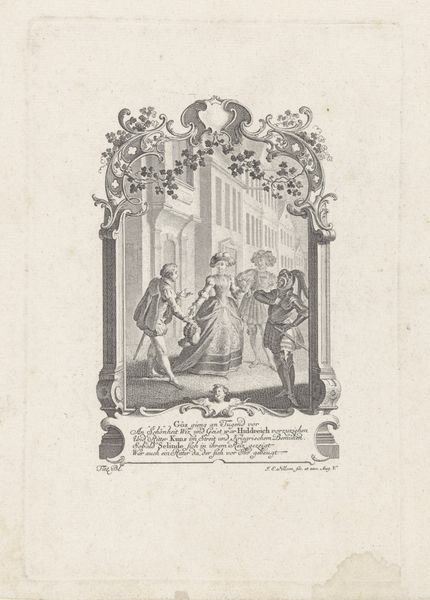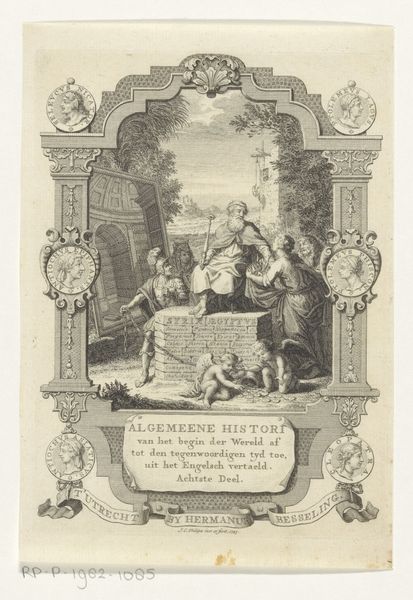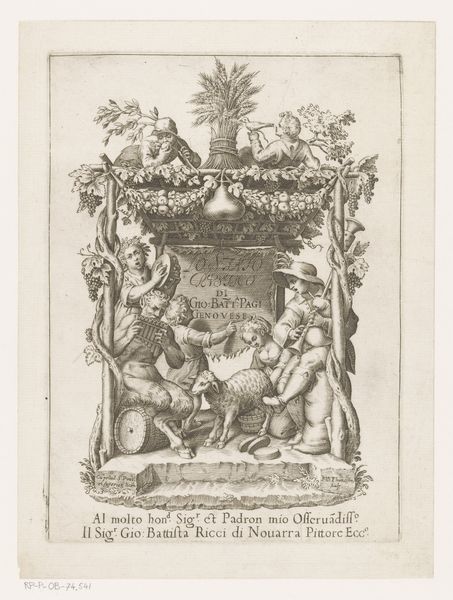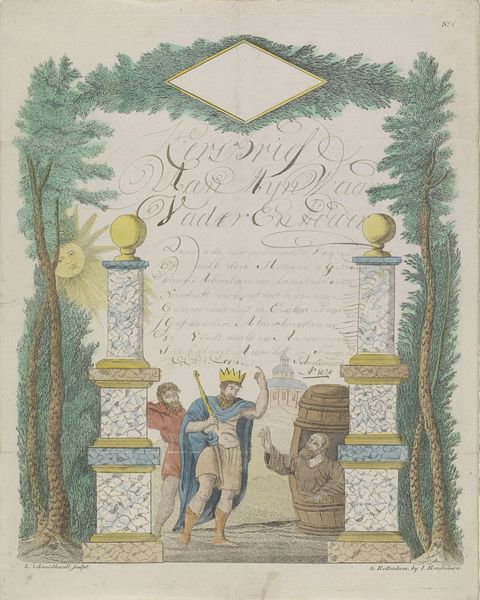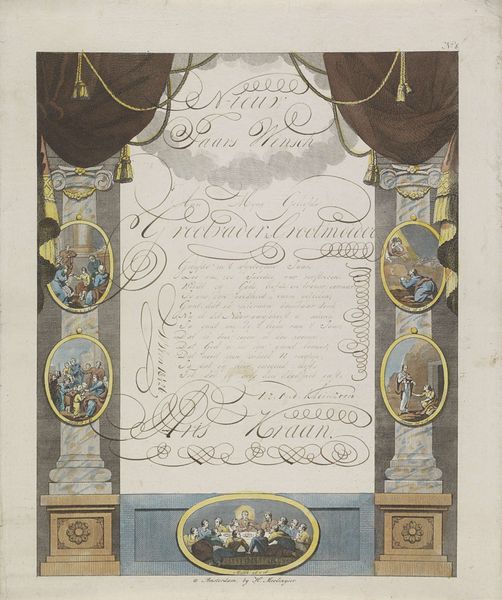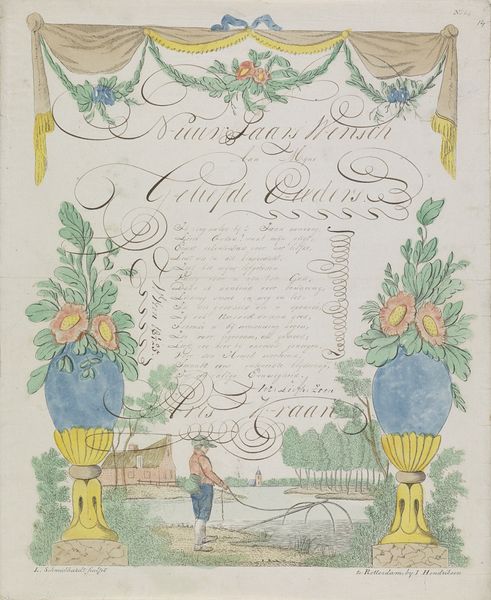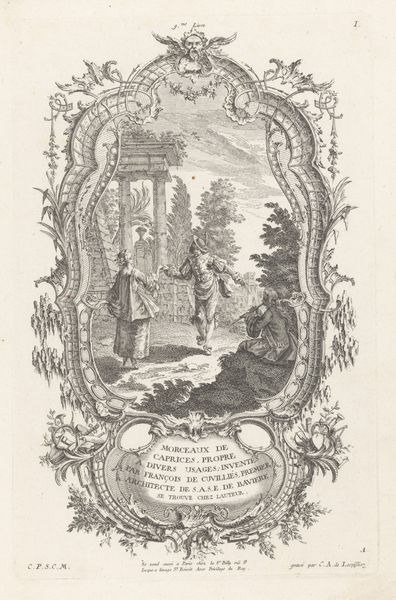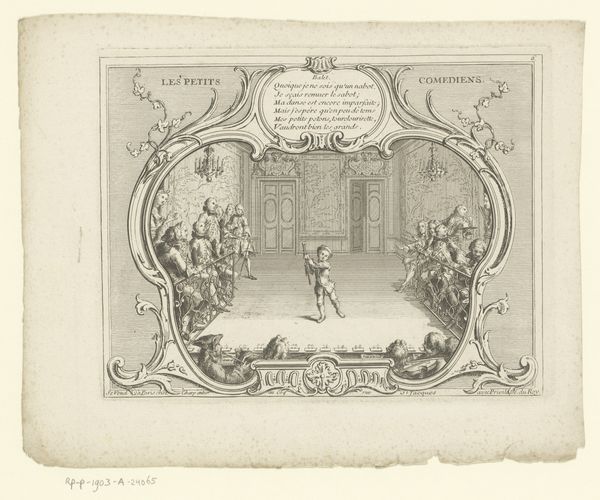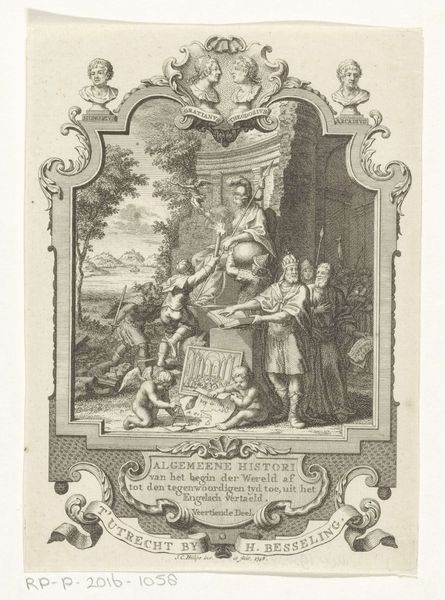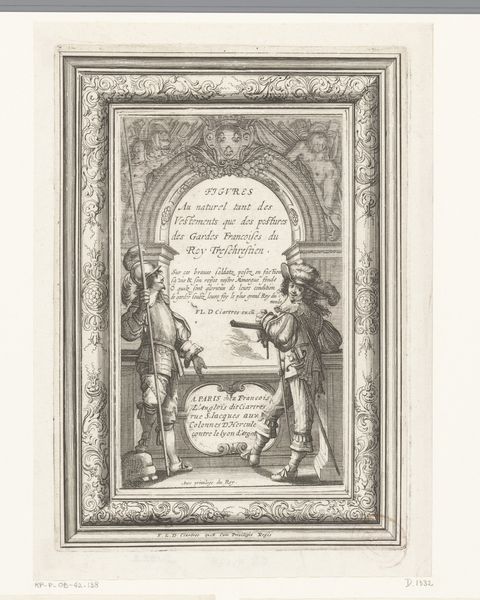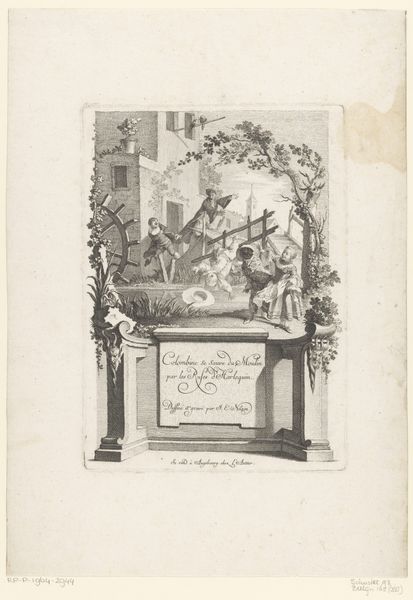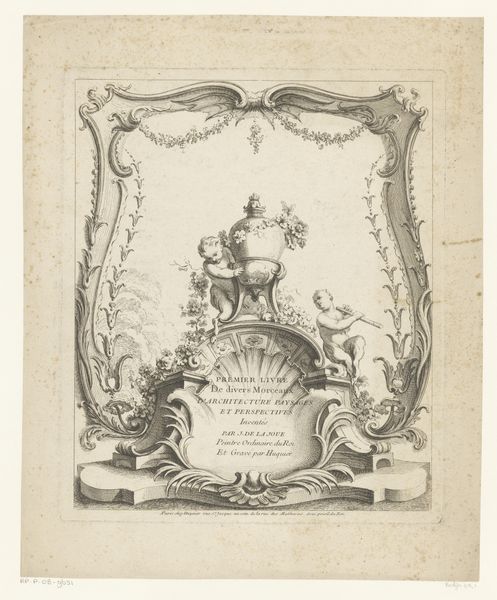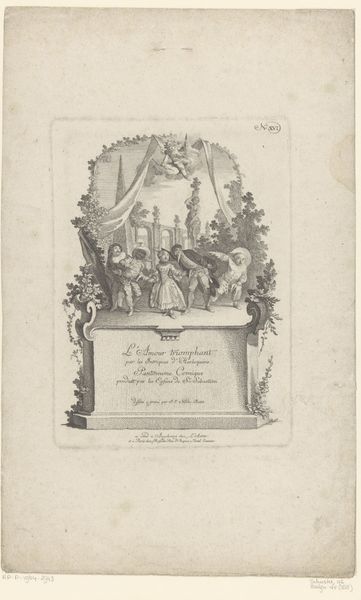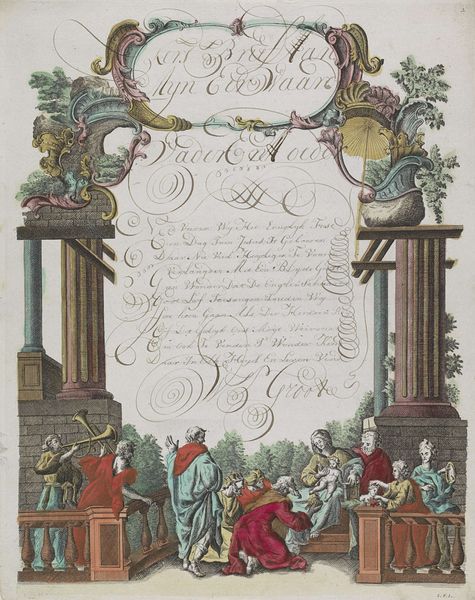
drawing, paper, ink, pen
#
portrait
#
drawing
#
quirky sketch
#
narrative-art
#
neoclassicism
#
pen sketch
#
old engraving style
#
sketch book
#
classical-realism
#
figuration
#
paper
#
personal sketchbook
#
ink
#
sketchwork
#
pen-ink sketch
#
pen work
#
sketchbook drawing
#
pen
#
history-painting
#
sketchbook art
Dimensions: height 405 mm, width 334 mm, height 394 mm, width 320 mm
Copyright: Rijks Museum: Open Domain
Editor: This pen and ink drawing, titled "Wensbrief met Alexander de Grote die Diogenes in de ton bezoekt" by Leonardus Schweickhardt, was made in 1833. The lettering is really elaborate. What is its context, how does this integrate within the history of imagery and text? Curator: Considering the period and style, we see a resurgence of neoclassicism, aligning with a renewed interest in classical ideals of philosophy and leadership, specifically here around 1833. Alexander the Great visiting Diogenes was a relatively popular subject demonstrating contrasting philosophies of power and asceticism, so there were likely broader interests among audiences in social and political status. Does that frame shift your interpretation? Editor: That does reframe it for me, thanks. It makes me think, was this something that would have been widely available, or mostly kept within specific social circles, like, say, philosophical societies? Curator: Good question. The level of detail and the use of pen and ink suggests a limited production, perhaps for a specific patron or even a gift amongst the upper or middle classes, with access to education and classic works, so it wouldn't have reached a mass audience. What does that make you consider about the function of this image, and images like it at this time? Editor: That probably means that the meaning wasn’t intended to be universally grasped, it served more as a reflection of social standing of both the creator and the recipient. I now understand it's an intimate artwork expressing those ideals in a delicate package. Curator: Exactly. Thinking about it as a private message, rather than a public declaration, is key.
Comments
No comments
Be the first to comment and join the conversation on the ultimate creative platform.
